

Political, business and social elites across the country gathered in Beijing in early March, discussing the key topics of social concerns, such as carbon peak and neutrality, health and medical care, elderly care, artificial intelligence as well as big data. Standards serve as the foundation for ensuring the high-quality development of these areas. Let’s find out their voices about standards in the Two Sessions.
On carbon peak and neutrality
Accelerating the development of standards system on carbon peak and neutrality
By Shu Yinbiao, Member of the CPPCC National Committee
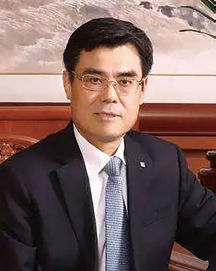
We should rapidly establish the system on carbon emission verification and accounting, said Shu Yinbiao, Member of the CPPCC National Committee and President of IEC.
Shu suggested conducting research on carbon emission standardization, accelerating the development of the standards system on carbon peak and neutrality, filling the gaps in key areas, and enhancing the construction of a basic database of carbon emission. He also suggested promoting the calculation method to be internationally compatible, improving the accounting standards and verification mechanism, and developing the standards on carbon footprint of low-carbon products.
In addition, he advised to strengthen our coordination with international standards, and actively participate in international standards development and revision. He put forward deeper cooperation with international counterparts, and cultivation of leading intermediate bodies for standards development and certification and testing services on carbon emission.
Optimizing the layout of green and low-carbon industries
By Wang Jianming, Member of the CPPCC National Committee
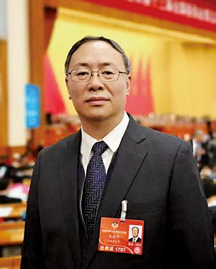
"The path to realize carbon peak and neutrality is to develop green and low-carbon industries, optimize the industrial and energy structure, and improve the economic system for green, low-carbon and circular development," said Wang Jianming, Member of the CPPCC National Committee and Head of Sichuan Bureau of Geology and Mineral Resources.
To resolve the prominent problems such as lagging standards system, Wang advised to rapidly establish the standards system for green and low-carbon industries, and develop relevant standards. He also advised to support enterprises to participate in standards development at various levels and conduct the certification of green and low-carbon products.
He proposed that China need to optimize the regional layout of green and low-carbon industries, and exert the role of state-owned enterprises, driving the coordinated development of these industries.
Coordinated development of eco-friendly buildings and carbon goals
By Du Xiaoguang, Deputy to the NPC
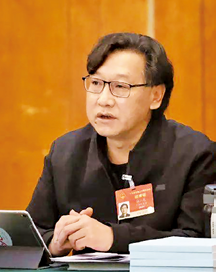
Green buildings will provide strong support for achieving the goals of carbon peak and neutrality. However, there are no complete method and standards system for carbon emission accounting in the field. Therefore, Du Xiaoguang, Deputy to the NPC and Deputy Chief Engineer of Yunnan Construction and Investment Holding Group Co., Ltd, put forward the following suggestions.
First, determine the period of carbon emission calculation, the value of carbon emission factors of energy and building materials, as well as the scope of greenhouse gas to account; develop the supporting standards on carbon emission accounting, especially in the areas of prefabricated buildings and construction projects.
Second, formulate plans and supporting policies for carbon neutrality of buildings based on the economic levels of various regions, and rapidly form an incentive and restraint mechanism for pollution and carbon reduction.
Improving the standards on carbon peak and neutrality
By Hong Jie, Deputy to the NPC
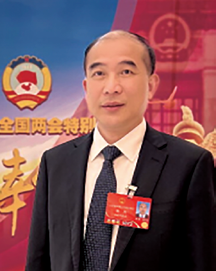
Positive progress has been made in the top-level design, national carbon trading market and carbon reduction concept across the country, according to Hong Jie, Deputy to the NPC and Chairman of the Board & President of SKSHU Paint Co., Ltd.
To improve the national carbon market, Hong advised to establish a unified standard, certification and labeling system of green products, construct a unified evaluation mechanism in green, low-carbon and energy conservation areas, release new incentive measures for certified green products, promote the green supply chain for good interaction of raw materials, commodity production and consumption, as well as release standards and methods to encourage the production of green and low-carbon products.
He also advised reducing energy consumption of future buildings by more scientific structural design and more energy-saving construction materials.
Speeding up the development of green AI
By Li Yanhong, Member of the CPPCC National Committee

Self-driving cars have entered a key period of application in China, facing a variety of problems, said Li Yanhong, Member of the CPPCC National Committee and Founder, Chairman of the Board and CEO of Baidu.
To address this, Li proposed several suggestions: first, support local governments to formulate relevant policies for autonomous vehicles; second, improve laws on transportation safety; third, establish the intelligent transportation infrastructure ahead of schedule, and strengthen policy support, enabling safer, greener and more efficient transportation.
He indicated that a more environment-friendly green AI will be realized by developing green hashrate to reduce the energy consumption of data centers, and developing green algorithm to raise the energy efficiency ratio of infrastructure.
He also suggested exploring the control of carbon emissions in data centers and developing standards on green algorithm measurement.
Developing the standards on battery carbon footprint
By Zeng Yuqun, Member of the CPPCC National Committee
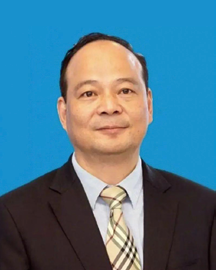
Battery plays a key role in the new energy industrial chain, which is included in the strategic plans in the United States and Europe. However, there are blanks in standards and methodologies for carbon footprint accounting of battery in China, according to Zeng Yuqun, Member of the CPPCC National Committee and Chairman of the Board of Contemporary Amperex Technology Co., Ltd.
It is important to initiate research, establish the management system on product carbon emission, participate in formulating global rules of carbon neutrality, and establish the mutual recognition mechanism with European countries, Zeng said.
To be specific, large-capacity batteries are needed in the transformation of electricity and transportation industries. With the gradual implementation of carbon policies, new-energy vehicles and the application of renewable energy are growing rapidly across the world, Zeng added.
Standards facilitate the development of green finance
By Li Minbin, Member of the CPPCC National Committee
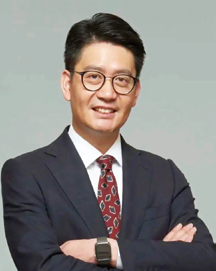
There is a consensus on stimulating more investment to facilitate green development through green finance, said Li Minbin, Member of the CPPCC National Committee and Joint Chief Executive Officer of Bank of East Asia.
Li proposed suggestions in two aspects. First, accelerate the unification of green finance standards. At the national level, the Plan on Finance Standardization in the 14th Five-year Plan period (2021-2025) specifies the improvement of green finance standards system. At the international level, national standards on green finance will be further promoted to be geared with international ones.
Second, expand the national carbon market. He advised to expand the industries and enrich the traded products in market, facilitate the innovation of derivative products, enlarge the scale of carbon trade market, and improve the risk control by financial technologies.
On health and medical care
Interaction of standardization and technological innovation in health area
By Li Lin, Deputy to the NPC
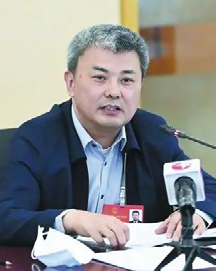
Promoting the interaction of standardization and technological innovation is of great significance in the transformation of fundamental research and productivity achievements in the health area, said Li Lin, Deputy to the NPC and Head of Shanghai Institute of Nutrition and Health, Chinese Academy of Sciences.
However, the standards system supporting the research on actual health conditions is not established in China yet. Meanwhile, the pathway to standardization is not clear, and the standards on technical evaluation need further improvement.
To meet the demands of high-quality development, Li advised to establish the standards system based on actual health conditions, explore the development route of patents and standards in the health sector, and value the role of standardization achievements in persified evaluation indicator system of technological achievements.
Specification on the quality of Chinese medicinal materials
By Huang Luqi, Member of the CPPCC National Committee
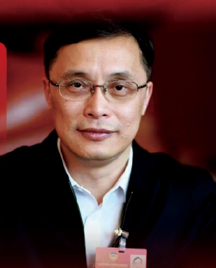
It is necessary and feasible to compile the specification on the quality of Chinese medicinal materials, according to Huang Luqi, Member of the CPPCC National Committee and Vice-Administrator of National Administration of Traditional Chinese Medicine.
National research resources can be integrated by experts in related fields to compile the specification based on the varieties of Chinese medicinal materials. The specification should comply with the requirements of Standardization Law of China and Drug Administration Law of China, Huang emphasized.
Based on the practices of quality supervision, the majority of the specification is recommended to become voluntary standard, and the rest is recommended to be mandatory standard. Though it is not a standard now, the specification will have better effect through reference to related documents.
Accelerating the standardization of medical information system
By Xu Ying, Member of the CPPCC National Committee
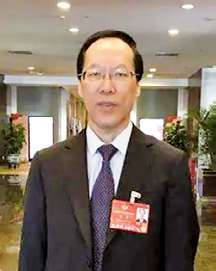
We should accelerate the standardization of medical information system, said Xu Ying, Member of the CPPCC National Committee.
At present, second-class hospitals and above across the country have basically completed building a basic information system, and most third-class hospitals have also established the information systems such as telemedicine.
Xu suggested enhancing top-level design, developing harmonized national data standards covering health records and releasing unified interface standards, so as to lay a good foundation for information sharing and interconnectivity; strengthening the safety management in various stages through modern technologies, and ensuring the accuracy and safety of patient information through biological identification technologies.
Meanwhile, he also suggested enhancing the construction of remote consultation platform and Internet-based hospital, and integrating resources to facilitate the standardization of medical information.
Adopting harmonized national standard on Chinese medicinal granula
By Zhang Boli, Deputy to the NPC
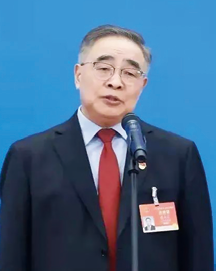
Zhang Boli, Deputy to the NPC and Academician of Chinese Academy of Engineering, put forward the following suggestions to pursue the healthy development of the Chinese medicinal particle industry.
First, strengthen the national standards development and accelerating the filing work. Five hundred national standards are expected to be released within a year. Second, develop standards on raw medicinal materials and define the number of indicators on content testing. Third, abolish provincial standards development and filing to avoid redundant research and resource waste. Last, reevaluate the existing national standards to avoid safety risks and costly prices.
Zhang also suggested discussing and developing safer quality standards based on the clinical practices in the past two decades, to ensure safe and effective clinical medication.
On elderly care
Advancing the standardization of smart elderly care with big data
By Yuan Yafei, Member of of the CPPCC National Committee
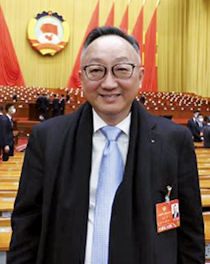
"I advised to promote the standardization of community home-based smart elderly care services, supporting its scaled and professional development," said Yuan Yafei, Member of of the CPPCC National Committee and Chairman of the Board of SanPower Group.
To solve existing problems, Yuan advised to enhance the standardization of smart elderly care solutions, gradually promote the related list of standards, develop standards according to the practical needs in different conditions, and guide elderly care organizations to improve professional capability.
In terms of big data, government departments need to establish unified standards, build the platform for elderly care services, integrate the cross-sector information and strictly regulate the access and use of data, Yuan added.
Improving the standards system on community home-based elderly care
By Sun Wei, Deputy to the NPC

There are urgent problems on community home-based elderly care, such as imperfect national legal system and standards system, a lack of talents and unsatisfying profitability, according to Sun Wei, Deputy to the NPC and Director of Broadcasting Department, Xi’an Broadcasting and Television Station.
To meet the needs of massive seniors and achieve the high-quality development of the industry, Sun put forward several suggestions: first, enhance the top-level design, and accelerate the improvement of the rule of law and standards system on community home-based elderly care; second, optimize the supply of services, and strengthen the talent building and service quality; third, enrich the service principals, and implement policy support to attract social forces to enter the market of community home-based elderly care services.
On AI and big data
Developing the standards on AI-based teaching and learning terminals
By Liu Qingfeng, Deputy to the NPC
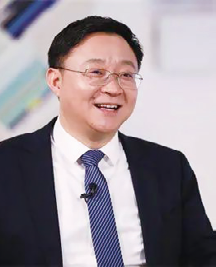
The ongoing innovation of AI has provided key technical support for the development of new teaching and learning terminals. However, these terminals are not included in the procurement list of educational departments, leading to the difficulty in fund declaration, said Liu Qingfeng, Deputy to the NPC and Chairman of the Board of iFLYTEK.
According to Liu, there is a lack of unified standard for new teaching and learning terminals. If the terminals equipped with subpar core technologies are used, it is easy to cause misleading in learning and bring hidden risks to information safety and students' eyesight.
Liu advised to enhance the guidance and promotion of terminals. First, develop standards on key technologies and products; second, ensure the promotion and fund support of terminals; third, encourage investment and promote the utilization of terminals.
Advancing the technical standards on digital transformation
By Ma Huateng, Deputy to the NPC
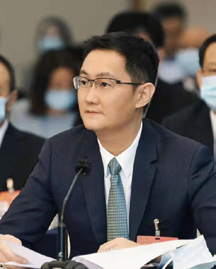
The integration of digital and real economy at this crucial moment has confronted some problems, such as the low adaptability of technical applications with industrial demands and less interoperability between different digital tools, according to Ma Huateng, Deputy to the NPC and Chairman of the Board and CEO of Tencent.
"We should address the challenges by systematic concepts, making joint efforts to promote the transformation and upgrading of traditional industries," said Ma.
He advised that we should guide the research on core industries and key fields, give play to the leading role of technical standards, increase the preciseness and effectiveness of digital upgrading, explore the Chinese solution for the coordinated development of digitization and low carbon, summarize the advanced experience in public services, and enable the public to share the achievements.
(Translated by CSP based on news in Chinese)